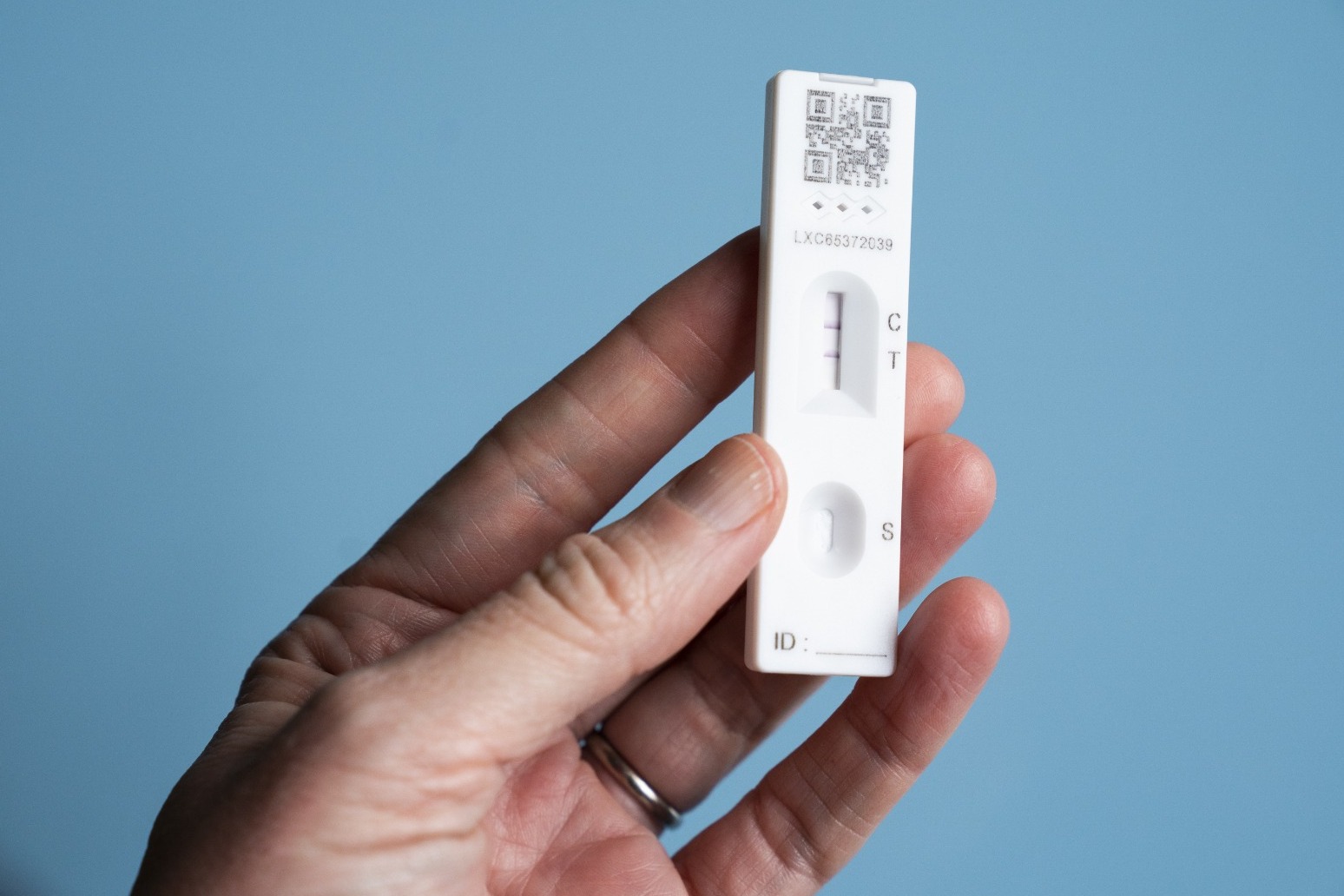-
 play_arrow
play_arrow
DukeBox Radio The Voice Of The Wellington Academy
-
 play_arrow
play_arrow
Jetstream Episode #15 - Festival of Education Celebration

But they’re still well below levels reached earlier this year
Covid-19 infections are rising in most parts of the UK but are still well below levels reached earlier this year, figures suggest.
In England, infections are estimated to have climbed above one million for the first time since the end of October, while Scotland and Wales have both seen an increase.
The trend in Northern Ireland is uncertain and there is a mixed picture among different regions and age groups.
The jump in infections is likely to be driven by people mixing more indoors, health experts said, and comes as other winter viruses such as flu are circulating more widely.
The total number of people in private households in the UK testing positive for coronavirus stood at an estimated 1.3 million in the week to December 5, according to the Office for National Statistics (ONS).
This is up 16% from 1.1 million in the previous week.
During the main waves of coronavirus earlier in 2022, the total peaked at nearly four million in July and just under five million in March.
Michelle Bowen, ONS head of health surveillance, said infections have begun to increase again across “most of the UK”, though “the trend varies across the English regions and ages”.
“We will continue to monitor the data carefully as the winter months progress,” she added.
The latest figures suggest the UK is facing its third winter in a row with Covid-19 on the rise.
But unlike in 2020 and 2021, when coronavirus was the main driver of sickness and hospitalisations, this winter is seeing other viruses becoming more prevalent.
Flu is now “circulating widely” across the country, with a sharp increase in hospital cases last week, particularly among the over-85s and children under five, according to the UK Health Security Agency (UKHSA).
In England, the rate of hospital admissions for flu has overtaken those for people with Covid-19 for the first time since the pandemic began, and is now running at a higher level than in any week since the 2017/18 season.
Dr Jamie Lopez Bernal, UKHSA consultant epidemiologist for immunisation, said: “We’re seeing rises in flu, Covid and other winter viruses as people mix more indoors.
“Covid hospitalisations are highest in the oldest age groups, so it is particularly important that everyone who is eligible continues to come forward to accept their booster jab.
“While Covid-19 and flu can be mild infections for many, we must not forget that they can cause severe illness or even death for those most vulnerable in our communities.”
Coronavirus infections in England have risen for the third week in a row and stood at an estimated 1.1 million in the week ending December 5, the equivalent of one in 50 people, the ONS said.
This is up from 941,700, or one in 60, in the week to November 26.
In Scotland, 100,700 people were estimated to have Covid-19 in the latest week, or one in 50, up from 88,500 or one in 60.
Wales has also seen an increase, with 55,900 infections in the week to December 5, or one in 55 people, up from 43,400 or one in 70.
In Northern Ireland, the number of people testing positive for Covid-19 stands at 38,700, or one in 45, compared with 36,700 in the previous survey, or one in 50.
Infection rates in England are highest among 25 to 34 year-olds, with 2.9% likely to have the virus – the equivalent of one in 35.
Rates are estimated to be rising among people aged 25 to 34, 35 to 49 and 50 to 69.
The ONS infection survey is the most reliable measure of the prevalence of coronavirus and is based on a sample of swab tests from households across the UK.
There is a slight lag in the reporting of the data, due to the time it takes for the survey to be compiled.
Published: by Radio NewsHub
Written by: admin




